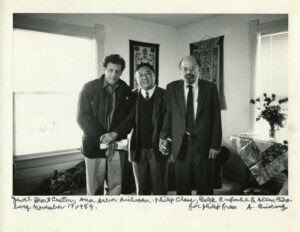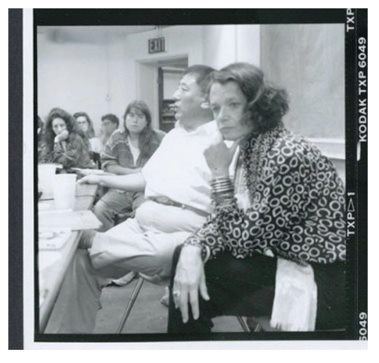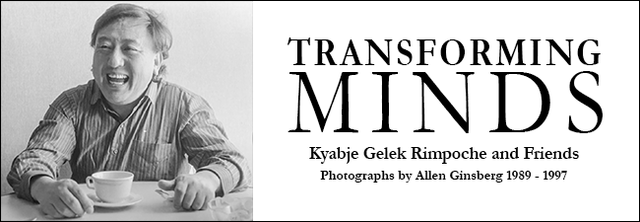Almost exactly seventy years ago, Jack Kerouac began reading and writing about Buddhism with extraordinary dedication and fervor, signaling the beginning of what might be called “Beat Buddhism” – a cultural and religious phenomenon whose literary and spiritual echoes still are heard to this day.
Introduction
Although there have been “heritage” Buddhists in North America since Chinese, and then Japanese, immigrants started arriving in the nineteenth century, “convert” Buddhists only began to appear on the continent in significant numbers after World War II. This development was spurred in part by the publication of ever-greater numbers of books about Buddhism, in part by East-West cultural interchanges resulting from the war – but perhaps most significantly by the literary and spiritual efforts of Kerouac and other members of the so-called “Beat Generation.”
This workshop will focus primarily on the place of Buddhism in the lives and poetry of seven Beat authors: Jack Kerouac, Philip Whalen, Gary Snyder, Diane di Prima, Bob Kaufman, Joanne Kyger, and Allen Ginsberg. We will first situate the Beats within American literary and religious history, and then explore the approach to Buddhism found in selected works of each of the poets just mentioned, seeking to understand their take on Dharma both within the context of their own lives and times and in relation to more traditional presentations of Buddhism in the premodern period and in non-western cultures. Time permitting, we also will consider the work of non-western and/or post-Beat authors like Nanao Sakaki, Chögyam Trungpa Rinpoche, and Anne Waldman. We will conclude by considering the Beats’ influence on North American Buddhism from the vantage point of the seven decades that have passed since Kerouac’s first deep dive into the Dharma.
Jewel Heart and the Beats

In 1989, Allen Ginsberg’s close friend, Philip Glass, a student of Rimpoche, brought Ginsberg to Michigan to perform a benefit concert for Jewel Heart. From that first meeting and until Ginsberg’s death in 1997, Rimpoche was his Tibetan Buddhist teacher and friend. Ginsberg, was also, in many ways, Rimpoche’s teacher — a consultant in matters involving the English language and the more puzzling facts of Western culture. The two formed an indissoluble bond.


The Transforming Minds exhibit celebrated Kyabje Gelek Rimpoche and Allen Ginsberg’s relationship through the lens of Ginsberg’s camera. Curated by Peter Hale and Ben Chatag. Tibet House US, the Allen Ginsberg Estate and Jewel Heart International were delighted to partner on this exhibition of unique images by the celebrated visionary and poet Allen Ginsberg.
Fee: $75 / Pay What You Can
About Roger Jackson

Access a selected video with Allen Ginsberg from The Gelek Rimpoche Archive for free
For context and background of the Buddhism and the Beats teachings, here is a link to a selected video of Allen Ginsberg performing at the Lion’s Roar Summer Retreat from The Gelek Rimpoche Archive in 1993. You should also note the Archive contains many other teachings Gelek Rimpoche gave over the years but we think this is a good one to start with.
From the Archive: Lion's Roar Summer Retreat Episode 11 - 1993


